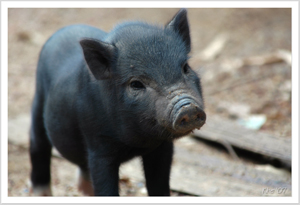A new study has shown that pig hearts may be a viable replacement in human patients. Researchers were able to successfully transplant a pigs heart into baboon which has now survived for over a year.
This new progress in cross-breeding transplants may be a step closer to find another source of hearts for humans who need organ transplants. Each year approximately 3,000 Americans are in need of a heart transplant. Unfortunately there are typically only 2,000 hearts are available each year, the use of pig hearts could help close this gap.
Patients who could not wait for a human heart face using an artificial heart, which are far from perfect and often pose risks to the humans because of possible infection, power issues, haemolysis or clotting.
Organs transplanted from other animals into primates used to last only for about six months before the new host rejects them.
The option of using an animal organ for transplants was long proposed. However, the problem is in the way the hosts rejects the transplanted organ.
The similarity in pigs hearts to human hearts is why they were selected as the ideal source of cross-species transplants.
However, critics claim that pigs have a shorter life cycle than humans, so their hearts have to be replaced frequently. Their hearts may also transfer diseases.
The scientists have addressed this issue by altering the DNA of the pigs to make their heart more compatible with primates as well as humans. They removed some pig genes that could trigger an immune reaction in the hosts, and added some human genes.
In the baboon experiment, pig hearts were implanted into the abdomens of the baboons. The monkey’s hearts were still retained, but the new hearts from the pig were connected to the circulatory system of the host baboons. These baboon subjects were also treated with medication that could suppress their immune systems. After more than 500 days, the scientists reported that the hearts are still working normally.
If this cross-species organ transplant succeeds, this could eliminate the shortage of donor organs.
You can learn more about inter-species organ transplant in the links below.

